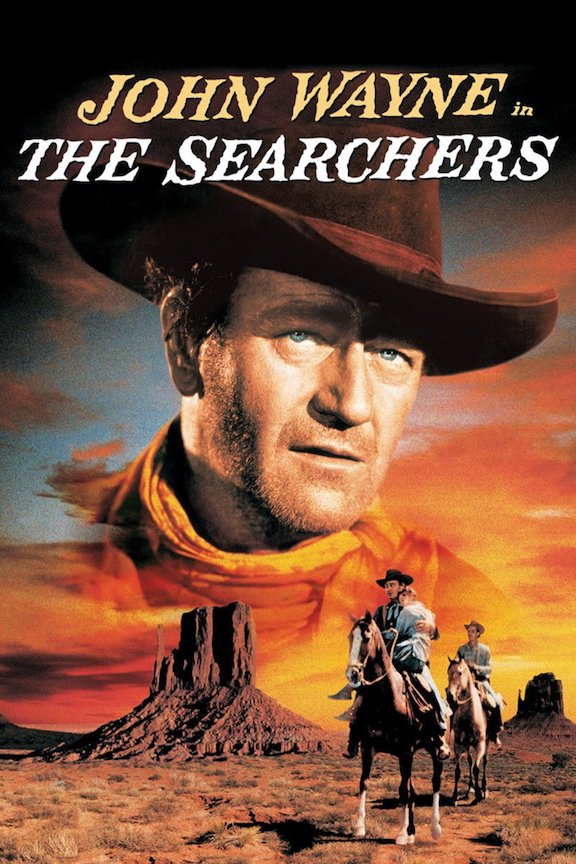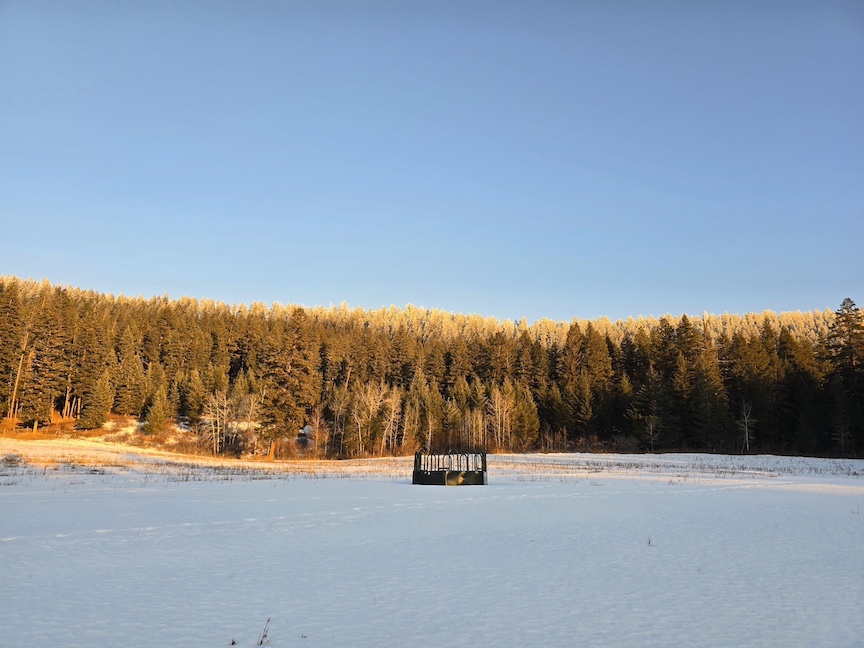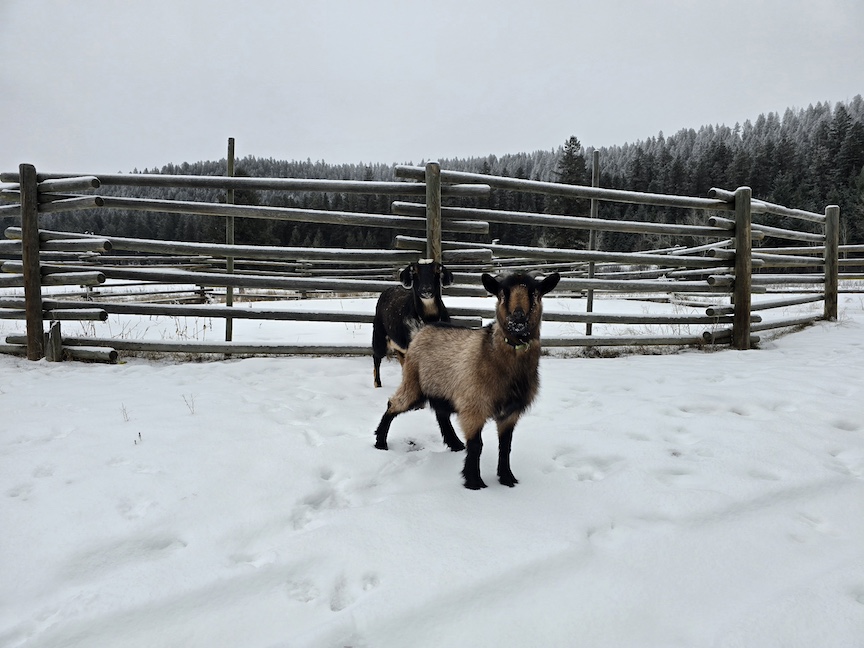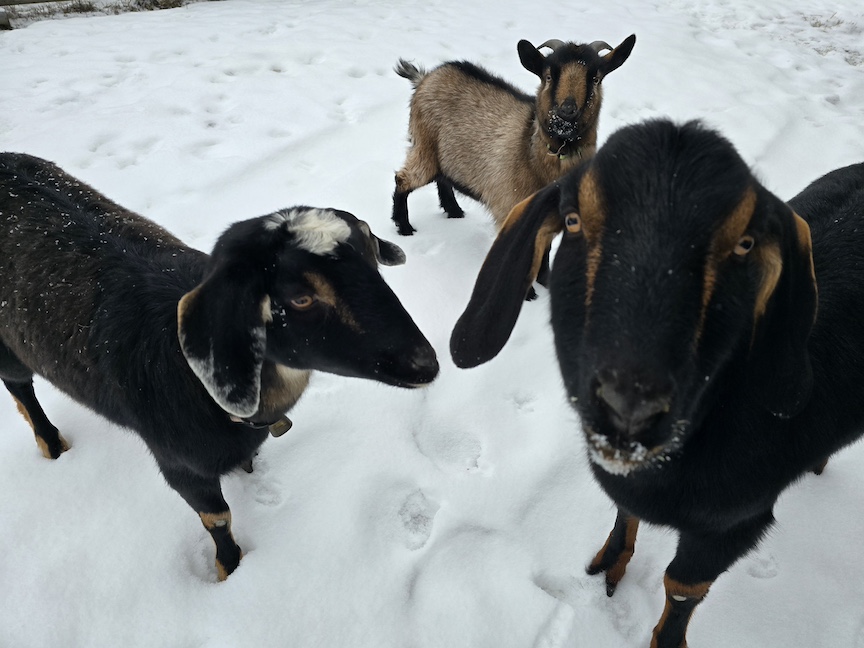Starring: John Wayne, Ward Bond
Director: John Ford
Released: 1956
Mood: If you have a lot of laundry to do and you need a good Western with a bunch of bad parts so you won’t mind leaving the room to change loads.
The Searchers is hailed as one of the greatest American movies, and is AFI’s number-one Western of all time… and I can’t see how it continues to hold the top spot.
John Wayne IS at his best here, I’m not arguing that. The cinematography is completely genius, and the story contains some powerful layers and perspectives. It showcases the intense, crazed racism of manifest destiny through Wayne’s character, and I can see how it was hailed as the best Western AT its time.
But I have three big issues with this movie getting as much praise as it does:
- Other than John Wayne and Ward Bond, most of the acting is awful
- The frequent, forced comic relief totally ruins the mood
- The portrayal of Comanche people is largely offensive
The story makes a slapstick joke out of abusing a Native woman, uses gross stereotypes about Indigenous peoples’ intelligence, and has a white dude in the only meaningful Comanche part.
You can’t tell me that in 2022, this is still the ‘best’ Western we’ve got.

The Searchers opens in Texas, 1868. Ethan Edwards (John Wayne) rides up to a homestead, returning from serving in the Confederate Army.
And boy, did he serve with PRIDE. It’s mentioned that the war has been over for three years but Edwards didn’t come home ’til now because he doesn’t believe in surrender, and that he still upholds his oath to the South. He also shows open disgust for his adopted nephew, a part-Cherokee lad named Martin (Jeffrey Hunter).
What isn’t said but is delicately shown through glances, touches, soft music, and long looks, is that there’s some serious heat between Ethan and Martha, his brother’s wife.
Then some livestock is stolen and a small group rides out to investigate, but it turns out to be a Comanche trick. While they’re gone the remaining family is slaughtered, and Ethan’s niece Debbie and the neighbour’s daughter are kidnapped. The men set out on a seemingly hopeless rescue mission.
Ethan’s search for his niece becomes a hate-fuelled, 10-year obsession. After awhile you question if it’s still about Debbie… or if it ever was.
![]()
SPOILERS AHEAD!
The Searchers is like two movies awkwardly stitched together.
You have this desperate tale of a bitter man out for revenge against an entire race of people – those parts are friggin’ captivating, and even Oscar-worthy. But every time it cuts to the other characters, it’s like a Disney Western.
Vera Miles and Dorothy Jordan deliver melodramatic overacting. Jeffrey Hunter feels like he’s in a high school theatre production. And then there’s a bunch of men with campy accents, and kids who just can’t act.
With the chipper music, jokes, and terrible stage fighting, and it’s like the stakeholders chickened out of their tense, racially charged drama and threw in a bunch of sap to make it easier for ‘50s audiences to digest – I mean, they did the same thing with Big Jake.
Because that weak subplot makes up so much of the whole picture, you can’t call it the best Western of all time.
Then there’s the way the filmmakers serve up the soft yearning of Ethan’s relationship with Martha in the first scenes, throwing viewers way off the darker themes. You’re lulled by this gentle music, and shots of Ethan’s anguish as he holds up Martha’s dress in the burning remains of the home. So you’re prompted by cinematic cues to root for Ethan.
But you’re not supposed to. Ethan is The Searchers‘ commentary on frontier racism:
- He’s repeatedly racist toward his nephew, even after Martin spends 10 years helping him search
- He gets off on shooting up an Indigenous corpse, and kills buffalo with the sole intent of preventing them from being food for the Comanche
- He comments that women who have been raped while in Comanche captivity “ain’t white” anymore and looks on them with contempt
- He finds his niece and then immediately TRIES TO SHOOT HER because he assumes she’s become “the leavings of a Comanche buck” – that scene, paired with the one where the pretty female lead (Vera Miles) says that putting a bullet in Debbie is “what Martha would have wanted,” are the movie’s true POV
- Then Ethan claims he has no more blood kin, completely disowning Debbie
- At the end, in that famous final doorway shot, he stands outside while everyone else is inside, illustrating that he still holds his rigid beliefs and doesn’t consider them family
Yup, The Searchers vividly depicts the ugliness of racism, and uses America’s favourite cowboy hero to do it. It’s actually a super ballsy move for the ‘50s.
That doesn’t mean, though, that it deserves to keep getting so much praise for its ‘sympathetic’ perspective of Native Americans. This movie makes the same missteps I pointed out in Broken Arrow: a Jewish actor playing an Indigenous chief, the costumes, and the scenes involving a glossy white girl acting badly in an ‘Indian’ dress.
But Broken Arrow actually DID present a balanced story. Meanwhile Chief Scar’s single line in The Searchers about killing white men because they killed his sons is not enough to balance the high level of violence perpetuated by the Comanches – especially the frequent allusions to rape.
I know that female hostages were assaulted, all the time. But because this story doesn’t reference what white soldiers did to innocent Native women, it’s heavily one-sided to the point where, again, you feel like you’re being guided to root for Ethan.
And seriously, playing silly music to make the audience laugh when a man literally kicks his Native bride down a hill is gross from any perspective.
![]()
Although Ethan is quite the departure from Wayne’s usual roles, he seems born to have played this part.
Wayne sinks right into the character with such a natural ease that you believe he would have actually BEEN Ethan, had he been born in a different decade. He radiates this sense of righteousness and dogged pursuit of his cause, and the sweaty, wild-eyed way he evokes Ethan’s anger and hatred is the most emotion I think I’ve ever seen Wayne convey.
- Fun Fact #1: John Wayne loved this movie and this role so much that he named his son Ethan
Ward Bond is only in part of the movie, as Rev. Capt. Samuel Clayton, but you can’t take your eyes off him in any of his scenes. It’s the way he silently observes Ethan and Martha’s tension and stoically turns away that elevates everything else that’s happening in that scene.
There’s no arguing the flawlessness of the cinematography. It’s a stunning 10/10 on lighting, gorgeously shot landscapes, and carefully crafted human shots that quietly tell more of the story than the characters can speak.
Like I said, The Searchers deserved to be called the best Western of its time. There’s a powerful message under all the overacting and excess plot, and it’s a fantastic showcase for John Wayne. I think that’s why everybody still loves it so much.
But it’s time to open up that top spot to something better. Maybe they could promote #2 or #4 on that same list. I’m just saying.
- Fun Fact #2: And now I’ve now called out five of the supposed top 10 Westerns in my reviews. Whoops.


